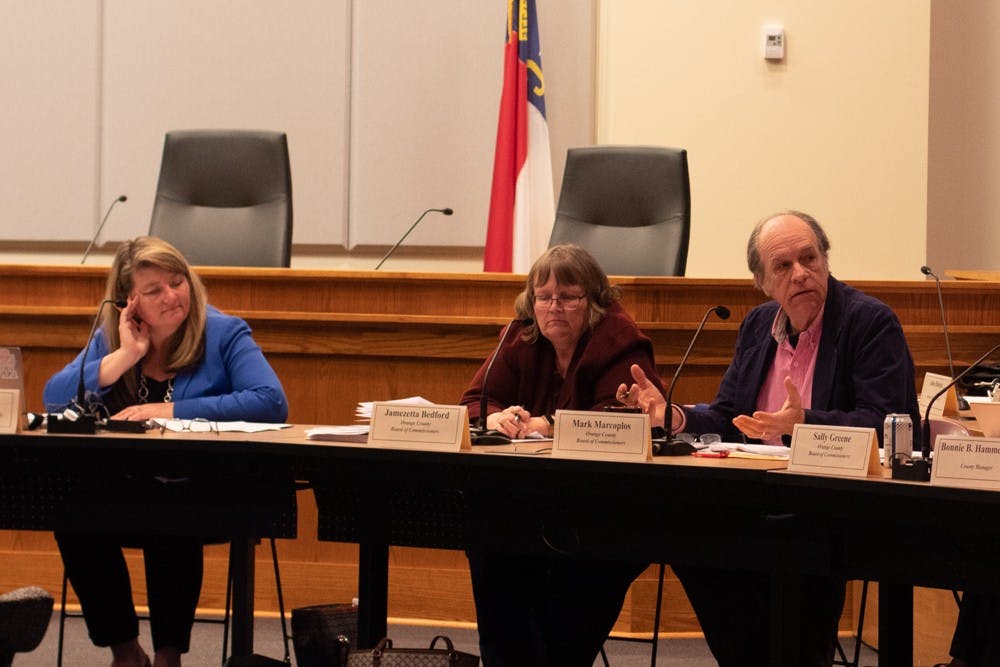The Orange County Board of Commissioners met to discuss the fate of several proposed climate mitigation projects across the county on Tuesday.
At the center of the meeting’s discussions were proposals for Solar for Schools grants, valued at $150,000 each, that would be awarded to both Orange County Schools and Chapel Hill-Carrboro City Schools.
The money for these projects, among others, would come from the new Climate Action Tax that the commissioners approved as part of the budget for the 2019-20 fiscal year. It is estimated that the additional quarter-cent property tax will generate approximately $469,272 in revenue for the county to use for climate mitigation projects.
The board has already approved the use of $169,272 for projects that the Orange County Commission for the Environment has listed as high-priority items, including supplemental weatherization projects for low-income households and the transition to LED lighting across the county.
However, it is unclear what the next steps are for the proposed solar array projects in the county’s school systems will be. The board appears to be open to implementing the project, pending further discussions with the county, while CHCCS has informed the board they would prefer to adopt a broader sustainability program instead.
Commissioner Mark Marcoplos said he and members of OCS, including Orange County School Board Chairperson Will Atherton, have been discussing the plan for a Solar for Schools grant in recent weeks, but that there was no deal in place to approve funding immediately.
Marcoplos said OCS officials needed more information regarding the project along with answers to questions about its implementation before making a decision about whether or not to accept funding to implement it. He proposed the implementation of a two-week waiting period to allow for OCS to work out these issues and extended the same to CHCCS.
“Our commitment to them would be to provide answers to the questions that they still have so that they can make a timely decision,” Marcoplos said.
Commissioner Earl McKee opposed the idea of the two-week waiting period, citing that he did not want to antagonize the school boards during negotiations for grant money.




